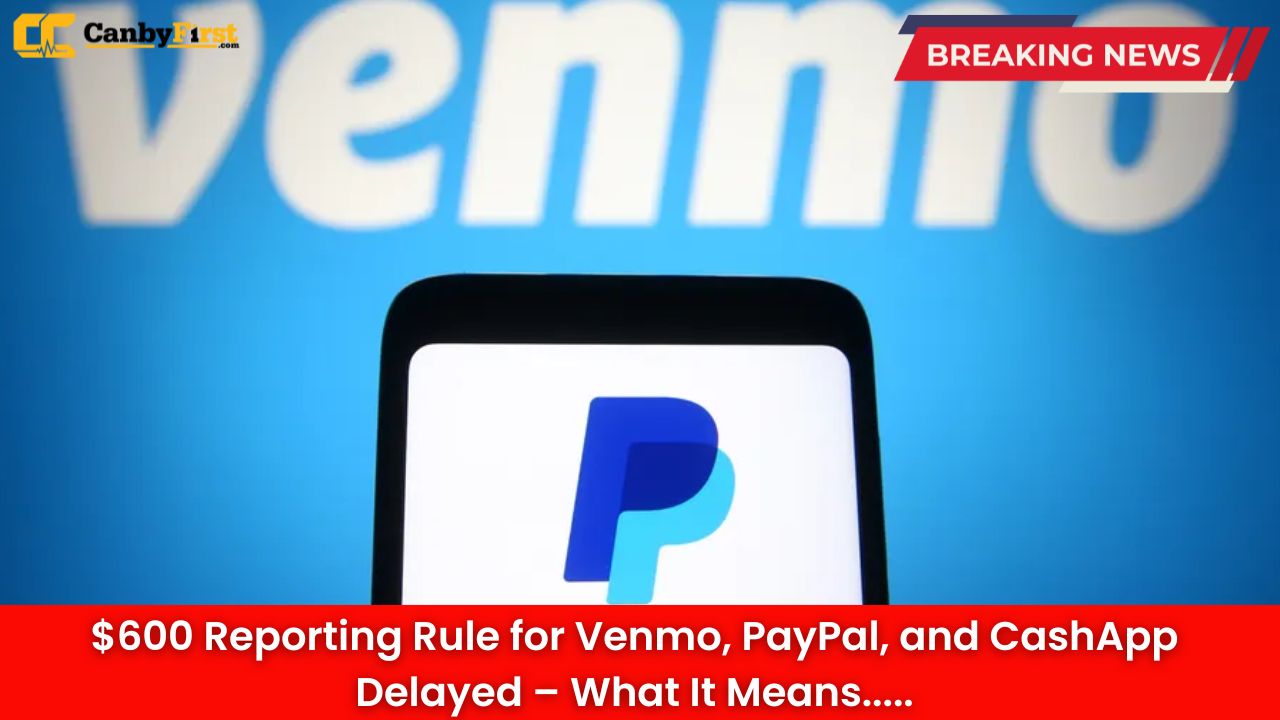The IRS has announced that it is delaying the controversial $600 reporting rule for third-party payment platforms like Venmo, PayPal, and CashApp. The decision comes after strong pushback from taxpayers, small business owners, and financial experts who expressed concerns about confusion, unnecessary paperwork, and the potential for individuals to be taxed inaccurately.
Background of the Rule
The $600 reporting threshold was originally introduced under the American Rescue Plan Act of 2021. The measure was aimed at tightening tax compliance for independent workers, small businesses, and those using digital payment platforms to receive income. Instead of the previous $20,000 limit with 200 transactions, the new rule required payment apps to issue a 1099-K tax form to users making over $600 in total payments during a calendar year.
However, critics quickly argued the threshold was too low and would capture casual transactions that were not business-related, such as reimbursements among friends, rent splitting, or family support. This broad scope created concerns about over-reporting and unnecessary audits.
Also Read
Why the Delay Happened
The IRS has officially postponed enforcement to give taxpayers, platforms, and accountants time to adjust. According to the agency, more guidance and system updates are necessary before such a low threshold can be effectively managed.
Tax experts emphasized that millions of Americans use these apps casually, and without clarity, a flood of 1099-K forms would hit taxpayers who never intended to run a business. The result could have overwhelmed both taxpayers and the IRS during already busy filing seasons.
What This Means for Taxpayers
For now, the old rules remain in place. Platforms like Venmo, PayPal, and CashApp will not be required to issue forms for payments under $20,000 or fewer than 200 transactions made for goods and services.
This means that:
-
If you casually use these apps to split restaurant bills, send money to friends, or cover household expenses, you do not have to worry about receiving a tax form for small transfers.
-
Businesses or freelancers earning income through these platforms above the historic threshold must still report their earnings to the IRS.
-
The delay does not change your legal obligation to pay taxes on eligible income, no matter the amount, but it avoids unnecessary reporting for small, personal transactions.
Impact on Small Businesses and Gig Workers
Freelancers, contractors, and gig workers who rely on these platforms remain at the center of this debate. While the $600 rule could improve income tracking and compliance, it also poses challenges for those juggling multiple income streams.
Service-based workers—such as ride-hailing drivers, delivery workers, and online freelancers—often receive payments through apps. For them, the rule would have made tax reporting more transparent but also more complex. The delay gives them more time to prepare proper accounting methods before stricter requirements are enforced.
Policy Debate Moving Forward
The debate around the $600 threshold is unlikely to end soon. Lawmakers have floated proposals to raise the limit to a more manageable figure, such as $5,000 or $10,000, which they argue would focus compliance efforts on business operators rather than casual users.
Meanwhile, tax watchdog groups argue that lowering the threshold is critical for closing the “tax gap,” the billions of dollars in unreported income every year. The IRS will need to find a middle ground that ensures compliance without burdening everyday consumers.
How Payment Apps are Responding
Venmo, PayPal, and CashApp have welcomed the delay, noting that the lower threshold would have forced them to update systems and potentially account for millions of unnecessary tax forms. They have emphasized their willingness to cooperate with the IRS but also raised concerns about user frustration and confusion.
Payment companies have encouraged their users to keep personal and business transactions separate, recommending dedicated accounts for business purposes to avoid confusion when rules eventually change.
What to Expect Next
The IRS has signaled that it plans to revisit the rule and modify its requirements ahead of future tax years. While the agency has not put forward a new threshold yet, it is widely expected that adjustments will be made to strike a balance between enforcement and practicality.
For now, taxpayers are advised to keep clear records of income if they are using digital apps for business purposes, while casual users can breathe easier knowing everyday transactions remain unaffected.
FAQs
1. What was the $600 reporting rule?
It required third-party payment platforms to issue a 1099-K tax form to users receiving more than $600 in total payments for goods or services within a year.
2. Does the delay mean I don’t have to pay taxes on income through PayPal or Venmo?
No. Income from business or freelance work must still be reported, regardless of reporting thresholds.
3. What threshold currently applies?
The older rule: $20,000 in payments with at least 200 transactions.
4. Will the IRS bring back the $600 rule later?
Yes, but possibly with adjustments. The delay gives time for lawmakers and officials to determine a manageable threshold.
5. Should businesses keep records even with the delay?
Yes. Accurate bookkeeping is still essential for businesses and freelancers to file taxes correctly and avoid penalties.












